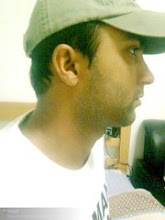 Portraits of Poets
Portraits of Poets
Chu Yuan
A portrait of Chu Yuan, often called the father of Chinese poetry.
Confucius
Li Bai
Li Bai - the best known poet of the Tang Dynasty, perhaps of all times.
Bai Juyi
Two years after Du Fu died, another great poet was born. Bai Juyi (772-846), the son of a petty official, was born in Xinzheng, Henan. He spent his youth wandring about to escape wars, and was often cold and hungry. He was successful in civil service examinations, became an official, and worked in the central government for about 15 years. Then because he was disliked by those in power, he was sent ot work in Jiangzhou (now Jiujiang), Hangzhou and Suzhou. Later he moved to Luoyang, where he died at the age of 75.
Tao YuanMing
This painting of Tao YuanMing was by the Wang Chungyu, a fourteenth-century literati painter, is in the collection of Beijing Museum, Beijing.
In the work, the painter portrays the poet as he imagines him on the basis of his writings and the most important events of his life.
He gave us the image of a dignified, calm, somewhat haughty man, qualities he displayed in the incident that put an end to his official career.
On this occasion he composed the famous poem Home Again in which he justified what he did.
Su Shi [Su DongPo]
The original stone portrait is in the Six-Banyan Pagoda in Guangzhou, Guangdong Province.Another portrait | More |
Qi BaiShi [Chi Pai-shih][
A photograph of Qi BaiShi, one of the most popular painters of the 20-th century, whose paintings are not only in all of the leading museums, but seemingly everywhere.
[Pu Hsin-yu]
A photograph of Pu Hsin-yu (1896-1963). He was a native of Beijing, a member of the Manchu imperial family. Following the overthrow of the Manchu Ching dynasty, he changed his name to Pu Ju, style Hsin-yu. He spent seven years at the Chien Tai monastery on Mt. Hsi, and took the studio name Hsi-shan I-shih or "Retired official of Mt. Hsi."

No comments:
Post a Comment